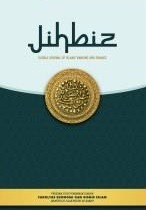WHY SHOULD WE CHOOSE SHARIAH FINTECH OVER SHARIAH BANKS: AN INVESTMENT ANALYSIS
DOI:
https://doi.org/10.22373/jihbiz.v6i1.25548Keywords:
Fintech, Shariah banks, Investment, PreferenceAbstract
The article investigated an analysis the preference between Shariah fintech and Shariah banks through an investment perspective. The rise of Islamic fintech represents a significant development in the financial landscape, offering a blend of Islamic finance principles with financial technology. This sector has seen rapid growth, expanding from a few companies in 2016 to over 200 by 2021. This making Shariah fintech not only promotes financial inclusion by reaching underserved populations but also supports the development of the MSMEs. Meanwhile, the Shariah banking industry facing a decline, particularly the investors’ preferences in the financial industry. Does this mean the Shaiah fintech successfully competes with traditional Shariah banks by offering greater flexibility, faster transactions, and lower costs, appealing particularly to younger, tech-savvy consumers? As an outcome, the research will be qualitatively examined utilising the library study approach and employing scientific research and publications as secondary data. The study concluded that Sharia fintech has proven global development with soaring market size. This significantly contributed to social impacts, direct investment, and reliability.Downloads
References
Ahmad, Abu Umar Faruq, and Farrukh Habib. "FinTech-based Islamic social financing products: a critical evaluation." Innovative Strategies for Implementing FinTech in Banking. IGI Global, 2021. 67-82.
Ahmed, Nisar, Khadija Rasheed, and Muhammad Talha. "Islamic banking perspective on shariah compliant FinTech (financial technology) model." Available at SSRN 3563030 (2019).
Ali, Hassnian, et al. "Global landscape of the Islamic Fintech: opportunities, challenges and future ahead." COMSATS Journal of Islamic Finance 4.2 (2019).
Aulia, Mahdiah, Aulia Fitria Yustiardhi, and Reni Oktavia Permatasari. "An overview of Indonesian regulatory framework on Islamic financial technology (fintech)." Jurnal Ekonomi & Keuangan Islam (2020): 64-75.
Bensar, Fatima Z., and Gonzalo Rodríguez. "Islamic Fintech and the paradigm shift in the financial landscape." Islamic Social Finance. Routledge, 2018. 129-143.
Che Hassan, Norhazimah, et al. "What factors affecting investment decision? The moderating role of fintech self-efficacy." Plos one 19.4 (2024): e0299004
Chhimwal, Bhaskar, Varadraj Bapat, and Sarthak Gaurav. "Investors' preferences and the factors affecting investment in the Indian stock market: an industry view." Managerial Finance 47.5 (2021): 723-744.
Dhivya, R., and C. Sekar. "Investors preference towards financial investments-some survey evidence." (2010).
Firmansyah, Hafiz Budi, and Ahmad Luky Ramdani. "The role of Islamic financial technology (FinTech) start-up in improving financial inclusion in Indonesia case: Angsur." 3rd international conference of integrated intellectual community (ICONIC). 2018
Firmansyah, Egi Arvian, and Mokhamad Anwar. "Islamic financial technology (FINTECH): its challenges and prospect." Achieving and Sustaining SDGs 2018 Conference: Harnessing the Power of Frontier Technology to Achieve the Sustainable Development Goals (ASSDG 2018). Atlantis Press, 2019.
GIFR. (2024). Global Islamic Fintech Report 2023-2024. Dinar Standard.
Gulrez, Tariq. "Strategic assessment of Islamic Fintech in GCC countries." Fintech, digital currency and the future of Islamic finance: Strategic, regulatory and adoption issues in the Gulf Cooperation Council (2021): 223-241.
Hasan, Diana. "Analysis of banking service financial technology (Fintech) risk management in Islamic banks (Case Study at Bank Syariah X in Jakarta)." KnE Social Sciences (2019): 492-508.
Hassan, M. Kabir, Mustafa Raza Rabbani, and Mahmood Asad Mohd Ali. "Challenges for the Islamic Finance and banking in post COVID era and the role of Fintech." Journal of Economic Cooperation & Development 41.3 (2020): 93-116.
Hehanussa, Umi Kalsum, and Syarifuddin Syarifuddin. "The Role of Sharia Fintech in Developing Islamic Economy in the Digital Era in Indonesia." Islamic Economics, Finance, and Banking Review 1.2 (2021).
Hudaefi, Fahmi Ali. "How does Islamic fintech promote the SDGs? Qualitative evidence from Indonesia." Qualitative Research in Financial Markets 12.4 (2020): 353-366.
Hudaefi, Fahmi Ali, M. Kabir Hassan, and Muhamad Abduh. "Exploring the development of Islamic fintech ecosystem in Indonesia: a text analytics." Qualitative Research in Financial Markets 15.3 (2023): 514-533.
Jamalurus, Hasmah Laili. "Islamic banking industry in fintech ecosystem: Issues and challenges." FBM Insights 5 (2022): 6-8.
Kasmon, Balkis, et al. "FinTech application in Islamic social finance in Asia region: a systematic literature review." International Journal of Ethics and Systems (2024).
Kumar, K. J. S., and P. Vikkraman. "Investors preference on financial services." Global Business and Management Research 2.2-3 (2010): 253-274.
Kurbonova, Mumtozaposho. "Potential of Islamic Fintech as an Innovative Solution to Social Inclusion." Iqtisodiy taraqqiyot va tahlil 1.6 (2023): 26-32.
Monika, Ardiany, Achsani Noer Azam, and Saptono Imam Teguh. "The impact of Fintech development to profitability of Islamic bank." International Journal of Research and Review 8.1 (2021): 250-258.
Muda, Ruhaini, et al. "Does Fintech revolution lead to the disintermediation of banks? A study into Islamic Bank income." Fintech, digital currency and the future of Islamic Finance: Strategic, regulatory and adoption issues in the Gulf Cooperation Council (2021): 169-185.
Muksal, M. (2018). The impact of Non-Performing Financing (NPF) to profitability (return on equity) at sharia bank in Indonesia. European Journal of Islamic Finance, (11).
Muksal, M., Hasnita, N., & Nazirah, P. (2023). Islamic Financial Literacy And Inclusion Level. IHTIYATH: Jurnal Manajemen Keuangan Syariah, 7(1), 18-34.
Muryanto, Yudho Taruno, Dona Budi Kharisma, and Anjar Sri Ciptorukmi Nugraheni. "Prospects and challenges of Islamic fintech in Indonesia: a legal viewpoint." International Journal of Law and Management 64.2 (2022): 239-252.
Nagy, Robert A., and Robert W. Obenberger. "Factors influencing individual investor behavior." Financial Analysts Journal 50.4 (1994): 63-68.
Naifar, Nader, ed. Impact of financial technology (FinTech) on Islamic finance and financial stability. IGI Global, 2019.
Noor, Afif, et al. "Regulation and consumer protection of fintech in Indonesia: The case of Islamic fintech lending." Linguistics and Culture Review 6.S3 (2022): 49-63.
Rolianah, Wiwik Saidatur, and Ahmad Najib Fu'adi. "The Role of Fintech to Moderation and Cultural Values for Muslims." Syaikhuna: Jurnal Pendidikan dan Pranata Islam 12.2 (2021): 148-158.
Rusydiana, Aam Slamet. "Developing Islamic financial technology in Indonesia." Hasanuddin Economics and Business Review 2.2 (2018): 143-152.
Saba, Irum, Rehana Kouser, and Imran Sharif Chaudhry. "FinTech and Islamic finance-challenges and opportunities." Review of Economics and Development Studies 5.4 (2019): 581-890.
Sari, N., Ibrahim, A., Muzammil, M., & Muksal, M. (2024). Managing Financing Risk Of Islamic Banking Products In Indonesia: A Value At Risk Approach. Jurnal Ilmiah Islam Futura, 24(1), 213-240.
Todorof, Maria. "Shariah-compliant FinTech in the banking industry." Era Forum. Vol. 19. No. 1. Berlin/Heidelberg: Springer Berlin Heidelberg, 2018.
Yasini, Sirajulhaq, and Marifatulhaq Yasini. "Current trends and future impacts of fintech in Islamic finance." FinTech in Islamic Finance. Routledge, 2019. 327-335.
Downloads
Published
Issue
Section
License
Jihbiz : Global Journal of Islamic Banking and Finance Education uses license CC-BY-SA or an equivalent license as the optimal license for the publication, distribution, use, and reuse of scholarly works. This license permits anyone to compose, repair, and make derivative creation even for commercial purposes, as long as appropriate credit and proper acknowledgement to the original publication from Jihbiz : Global Journal of Islamic Banking and Finance is made to allow users to trace back to the original manuscript and author. Readers are also granted full access to read and download the published manuscripts, reprint and distribute the manuscript in any medium or format.








